Why UPC is a constant at Muntu's rallies
Using UPC’s as a textbook example, throughout his rallies in the districts of Rubirizi, Rwampara, Mitooma, Sheema and Isingiro, he has warned regime operatives against acting arbitrarily.
ANT's presidential candidate Maj.Gen (Rtd) Gregory Mugisha Muntu addressing his supporters at Endinzi Town Council, Bukanga County, in Isingiro district, on Tuesday, October, 07, 2025. (Photos by Stuart Yiga)
________________
Lending credence to the adage that old is gold, vintage is making a stylish comeback, even in the world of interviews.
A classic example being the legendary 1983 exchange between Uganda’s then President Milton Apollo Obote and BBC journalist Robin White.
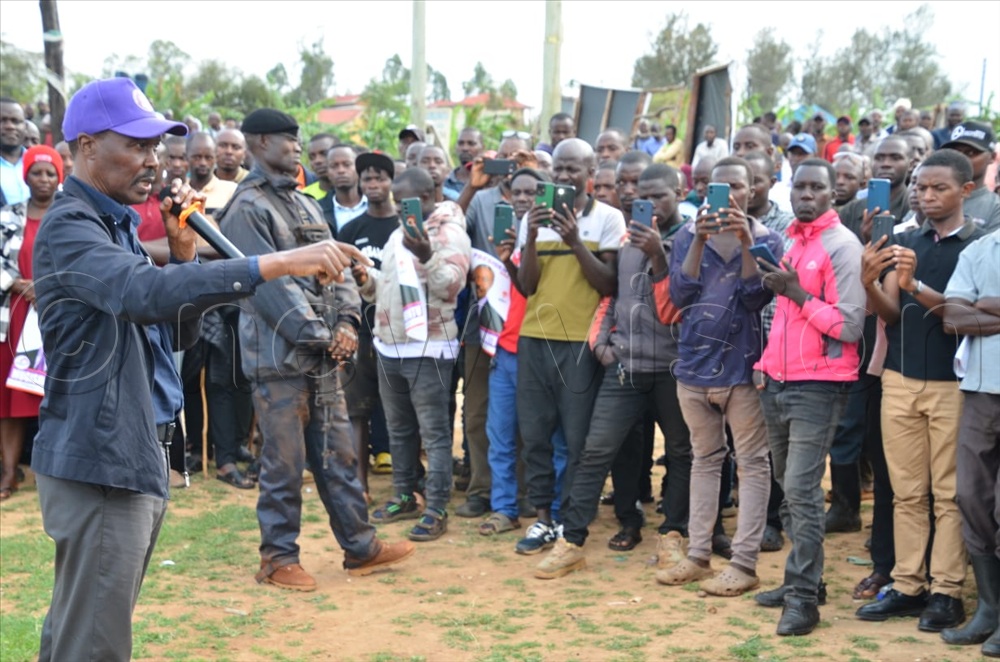
For context, this was three years after the disputed December 1980 General Election, whose aftermath drove the Uganda Patriotic Movement (UPM) candidate, now President Yoweri Museveni, to take to the bush.
Yet instead of accepting dialogue or an inquiry into the gross human rights abuses that drove his opponents to arms, the late Obote repeatedly resorted to chest thumping.
Boasting during the interview that National Resistance Army (NRA) held areas were shrinking.
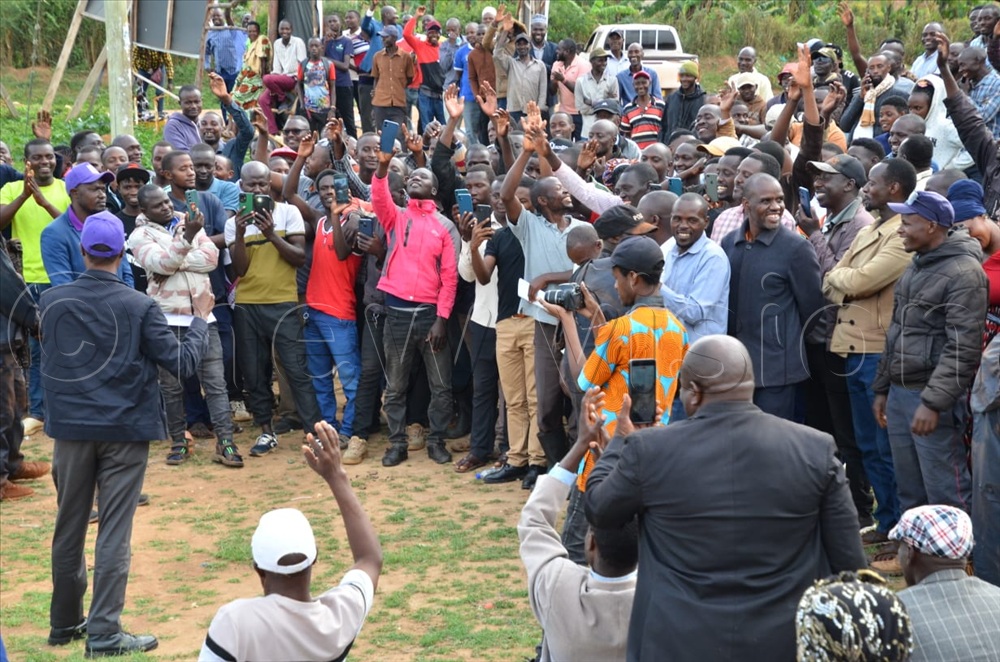
He added that, in any case, the rebellion was not a personal issue for him to resolve, but a constitutional one which could only be handled by the law.
“Why do you think Museveni is all that important in this country? He lost an election; he has no party which is viable in this country. Your name is Robin, do you remember the history of England’s Robin Hood?” he posed.
“Is it worthwhile talking to Robin Hood’s of this world? Baader Meinhof in Germany, the Irish Republican people? Is it worth talking to such gangsters and terrorists?” Obote charged.
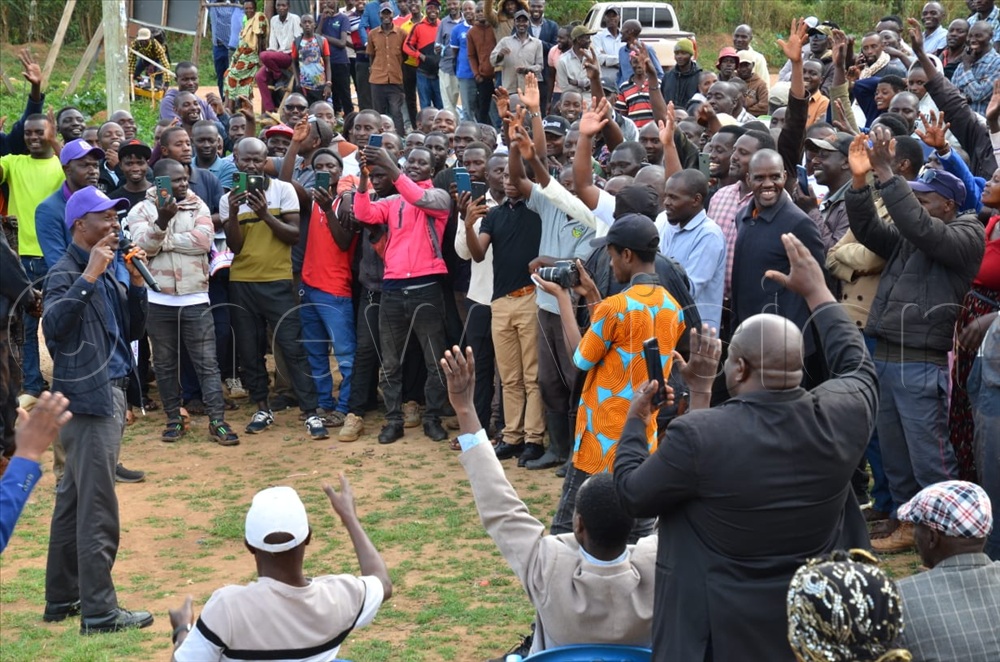
Two years later, on July 29, 1985, Obote was deposed by Gen. Tito Okello Lutwa and for the second time, went into exile, this time in Zambia.
Unbeknown among the very rebels Obote dismissed as bandits was one Mugisha Muntu, a son to his close confidante, the late Enoch Muntuyera, a former UPC chairperson of Greater Ankole.
Muntu, a native of Kitunga in Ntungamo, South western Uganda had joined the struggle as a 23-year-old after completing his studies at Makerere University.
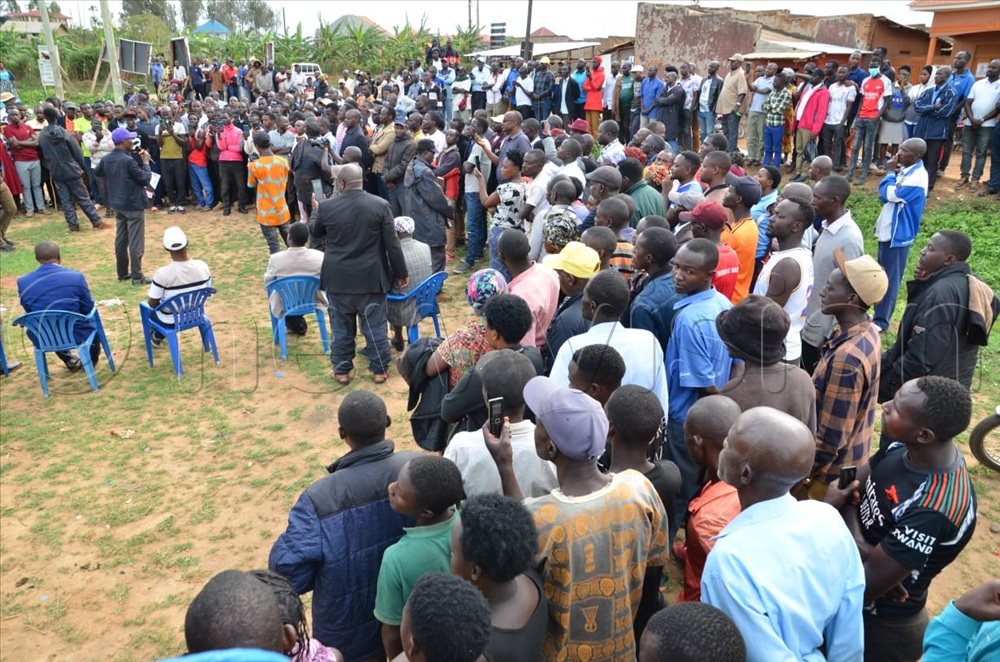
While in the bush in 1983, his father’s remains were repatriated by Obote from Lang’ata Cemetery and reburied in Ntungamo. Yet not even a shot to his chest and thigh could dull Muntu’s conviction in the pursuit of a new Uganda, anchored on respect for human rights, the rule of law and equality.
While he claims that they tried to raise concerns about the UPC government repeating the same mistakes that had paved the way for Amin to seize power in January, as young men, their warnings were ignored.
Nevertheless, Muntu told Kabwohe residents that he continued to voice his concerns to his peers Eng. Kwesiga and Mukasa, a science teacher with whom they often debated at the Livingstone Hall quadrangle, that the UPC government would eventually fall.
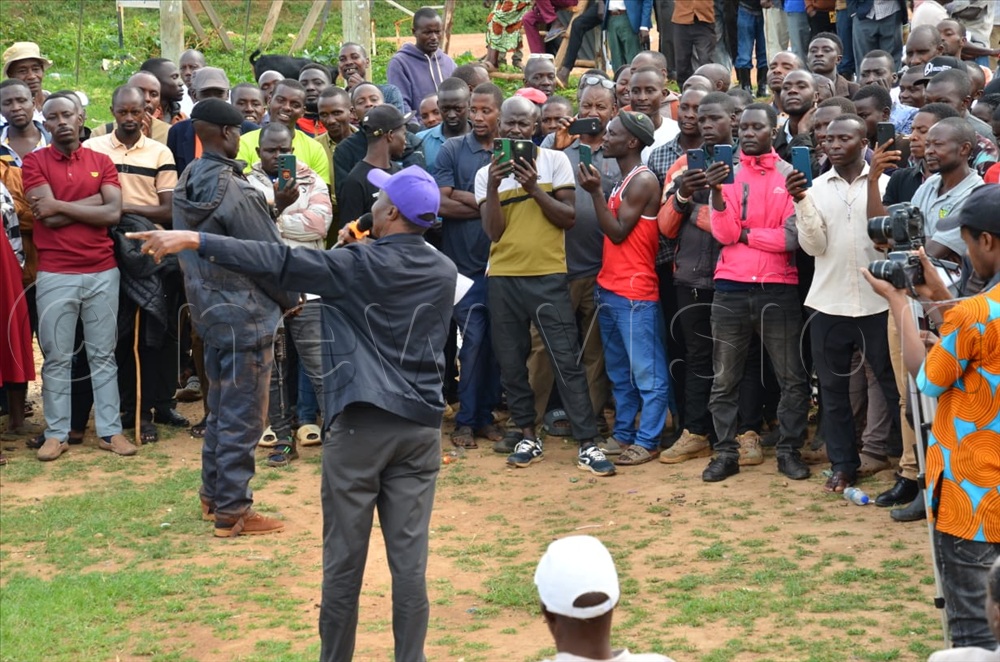
“In my estimation, I thought it would take us about 10 years, but within five years we had taken power….,” he recounted.
Long story short, after NRA captured power, Maj. Gen. (Rtd) Muntu went on to serve as Director of Military Intelligence (DMI), deputised by the now Rwandan President Paul Kagame. He later commanded the Fifth Division in Lira and served as Army Commander from 1989 to 1999.
Why history matters
One might ask why this history matters, especially in a country where, according to the 2024 National Population and Housing Census, 78 percent of the population is under 30.
But, yes, it matters because Mugisha Muntu is once again contesting for the presidency. Having run in the previous election, where he polled 67,574 votes, against Museveni’s 6,042,898.
UPC text book case
This time, however, Muntu has hit the ground running in a no-holds-barred campaign. Using UPC’s as a textbook example, throughout his rallies in the districts of Rubirizi, Rwampara, Mitooma, Sheema and Isingiro, he has warned regime operatives against acting arbitrarily.
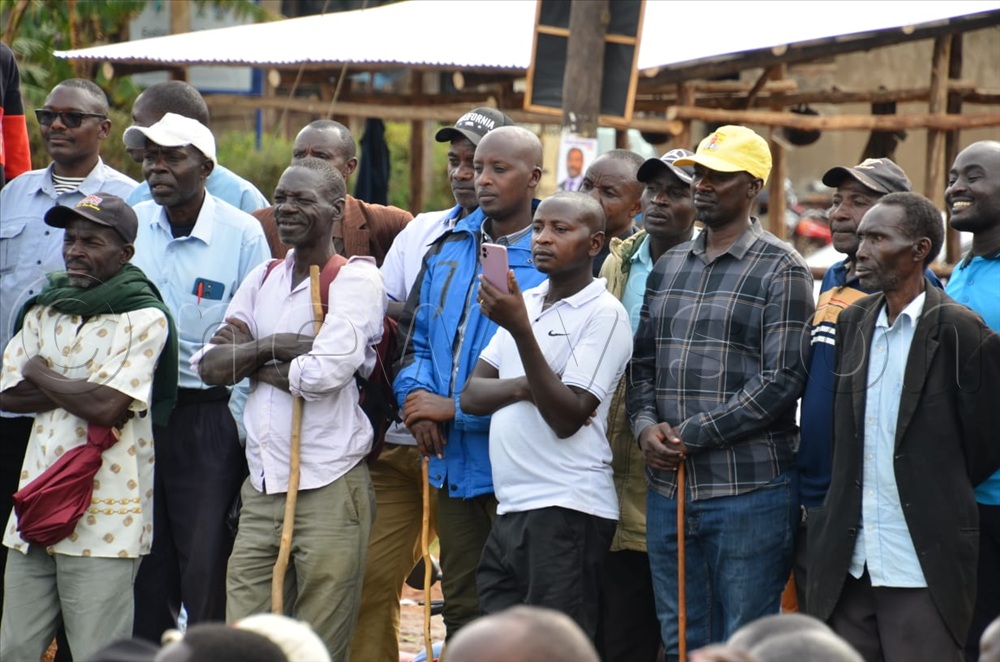
Addressing supporters at Nyamuyanja sub-county on October 7, Muntu warned that while he himself is not vengeful and stands for democracy, errant operatives could face severe consequences in the worst-case scenario.
As it was when Obote’s Government was overthrown by Gen. Tito Okello Lutwa on July 29, 1985.
"UPC was divided into science and syndicate factions. The latter was diplomatic and not oppressive. It comprised the late Yona Kanyomozi, Adonia Tiberondwa and Prof. Euphraim Kamuntu," Muntu narrated.
Syndicate, on the other hand, comprised the likes of security Minister Chris Rwakasisi and Rurangaranga. These he said, learnt a bitter lesson after the military took charge.
"Nothing happened to the family of Yona Kanyomozi, Adonia Tiberondwa and Prof. Kamuntu," said Muntu.
"But at Rurangaranga's home, those who know Kitagata, not even a day passed, people went to his home, not even a brick was left standing," he warned.
Amin overthrow
Adding that it was even worse when a combined force of the Tanzania People’s Defense Forces (TPDF) and Ugandan exiles overthrew the self-styled “Conqueror of the British Empire” (COBE) in 1979.
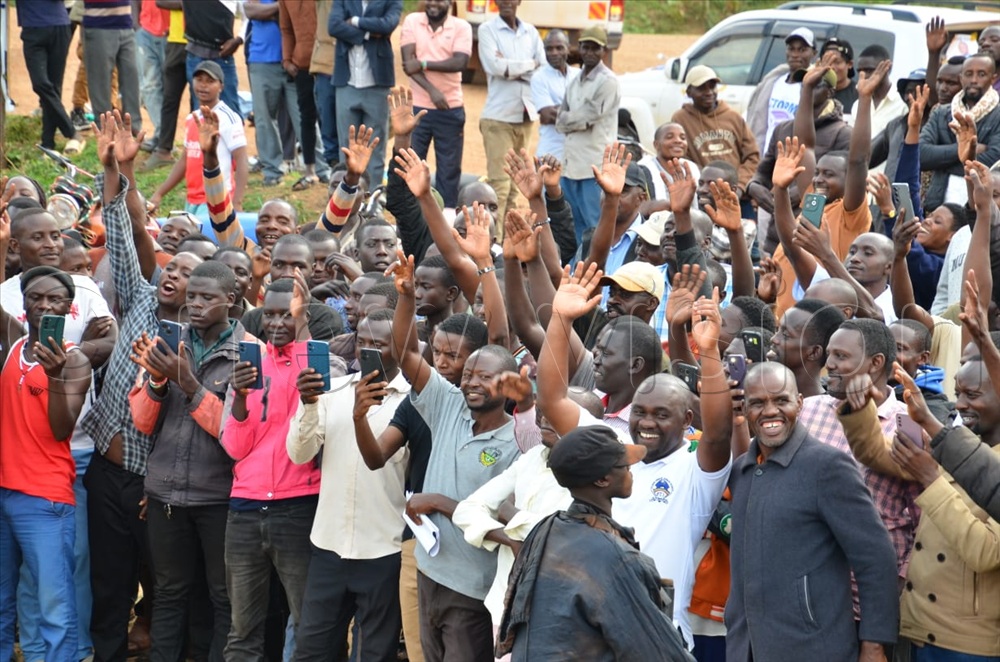
“You trust guns, but when Amin’s Government collapsed, soldiers were looking for civilian clothes and would discard their guns. Some were even wearing civilian clothes underneath their uniforms while the war raged. When Kampala was captured, they would remove the uniform, throw away the guns and disappear,” Muntu told Kabwohe residents.
Bottom line, Muntu contends that security officers should carry out their duties with professionalism and adhere strictly to the law.